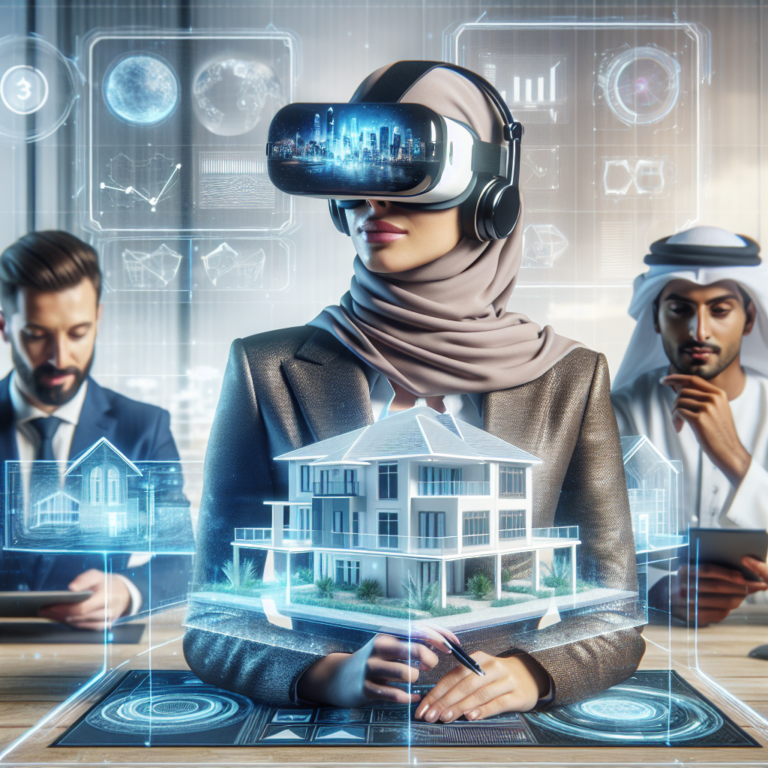The Transformative Impact of Virtual and Immersive Technology in Real Estate Marketing 🌟
Revolutionizing Real Estate Marketing
The landscape of real estate marketing is undergoing a dramatic makeover, influenced significantly by the introduction of Virtual Reality (VR) and Augmented Reality (AR). Traditional marketing methods are evolving, making way for a dynamic and engaging approach to property showcasing. These innovations not only enhance the buyer experience but also provide real estate professionals with competitive advantages in an increasingly digital world.
The Power of Virtual Reality in Real Estate
Virtual Reality has emerged as a game-changer in the industry, offering unprecedented levels of interactivity and engagement. Here’s how:
- Remote Property Viewing: With VR technology, potential buyers can experience properties from the comfort of their own homes, overcoming geographical barriers.
- Immersive Property Tours: Virtual tours allow buyers to explore listings in detail, including features that may not be easily visible in traditional showings.
- Enhanced Emotional Connection: By offering realistic experiences, VR helps create personal emotional connections with properties, making it easier for buyers to envision themselves in those spaces.
Benefits of VR in Real Estate Marketing
The advantages of incorporating VR into real estate strategies are numerous:
- Time Efficiency: Streamlined processes mean properties can be showcased at any time to interested buyers, reducing the time and effort in traditional viewings.
- Cost-Effectiveness: While initial investments in VR can be considerable, the long-term savings in time, travel, and marketing can significantly outweigh these costs.
- Design Improvements: Real-time visualization through VR allows for immediate feedback and adjustments, making design processes more fluid and responsive.
- Collaboration Opportunities: Teams can work together effectively using VR tools, especially valuable for remote projects and consultations.
- Data Analytics Insights: VR analytics can provide valuable insights on buyer behavior, helping agents tailor their approaches.
Challenges of Implementing Virtual Reality
While the potential of VR is immense, the transition to VR-based marketing is not without challenges:
- High Development Costs: Creating high-quality VR content can be expensive, posing a barrier to entry for some real estate professionals.
- User Experience Concerns: Ensuring that VR content is engaging, intuitive, and accessible to all users is critical for success.
- Integration with Existing Systems: Merging new VR technologies with current real estate platforms can be complex and require additional resources.
- Training Needs: Both agents and clients may need training and support to navigate VR experiences effectively.
The Age of AI in Real Estate
Simultaneously, the integration of Artificial Intelligence (AI) is driving significant shifts in the real estate sector. By 2030, AI is projected to contribute approximately $3.7 trillion to the global real estate market. AI technologies enhance efficiencies through:
- Predictive Analytics: Leveraging data to forecast market trends and property values.
- Intelligent Automation: Streamlining routine tasks for agents and reducing the administrative burden.
- Improved Customer Interaction: AI-driven chatbots and virtual assistants provide personalized support to clients around the clock.
Immersive Technology: A New Era of Property Showcasing
Immersive technology, which encompasses VR and AR, is redefining how properties are showcased. Here are some of its key benefits:
- Enhanced Engagement: Immersive experiences create pathways for stronger engagement, allowing clients to connect more deeply with properties.
- Access to Real-Time Data: Agents can access valuable insights about buyer interactions during virtual tours to refine their marketing strategies.
- Customization Options: Buyers can visualize alterations, allowing for a more tailored property search experience.
Future Trends in Real Estate Technology
As technology continues to advance, the real estate industry is on the brink of even more transformative changes:
- Growth of the VR Market: The global VR real estate market is projected to reach $2.6 billion by 2025, indicating a promising horizon for tech adoption.
- Integration of AI with Immersive Solutions: The synergy between AI and immersive technologies will likely pave the way for even more sophisticated property presentations.
- AR Enhancements: Augmented Reality is anticipated to enrich property mapping and design, offering superior visualizations and client experiences.
- Shortened Sales Cycles: VR could potentially cut the average sales cycle by up to 40%, drastically speeding up decision-making processes for buyers and sellers alike.
Embracing the Future of Real Estate
Real estate professionals who capitalize on the potentials of VR and AI early on will not only enhance their market position but also redefine the buying process for clients. Key strategies to consider include:
- Investing in High-Quality VR Content: Prioritizing the development of engaging and realistic virtual tours can yield significant returns.
- Training and Education: Providing training to agents on using these technologies efficiently will ensure they can maximize their benefits.
- Staying Adaptable: The ever-evolving nature of tech means that real estate professionals should be prepared to pivot and adapt to new innovations as they arise.
The future has never been more promising for those ready to embrace change and leverage the power of technology!




0 Comments